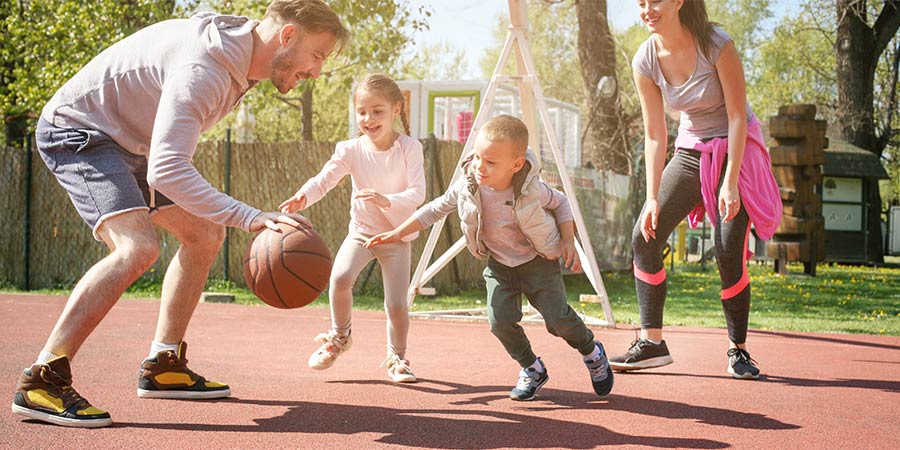GBMC Medical Experts Available To Comment On Exercise Related Injuries
March 29, 2018
NCAA’s Division One Men’s Basketball ‘March Madness’ Tournament slated for March 13—April 2
After sitting around or just taking it easy during the bitter cold, winter season, the body has grown accustomed to a certain level of inactivity. As warmer weather arrives, many people will go outside and participate in certain physical activities that they’ve neglected all winter. As a result, this is the time of year when many people will suffer various types of injuries by partaking in the simple act of trying to get some exercise or having some fun. Greater Baltimore Medical Center (GBMC) doctors are available to discuss the below story ideas, causes of sports and exercise-related injuries, summarize surgical and non-surgical treatment options, and outline therapy and recovery times.
ACL INJURIES AS COMMON AS "THREE-POINTERS"
March Madness Tournament brings us college basketball at the top of its game, with gifted athletes running, leaping and cutting. Those quick moves can put any player at risk for an injury, but anterior cruciate ligament (ACL) tears of the knee suffered by these athletes is common. According to recent statistics issued by the American Academy of Orthopedic Surgeons, the incidence of ACL injuries is currently estimated at approximately 200,000 annually with a higher occurrence in people who participate in high-risk sports, such as basketball, football, and soccer. D. Allan Lanzo, M.D., director of sports medicine at Orthopaedic Specialists of Maryland, P.A., can offer insight and training tips that can reduce the risk of knee injuries.
WHEN THE KNEECAP SHIFTS...IT HURTS!
Acute traumatic patellar dislocation, also known as a dislocated kneecap, is a common injury in the active and young adult populations. Athletes, coaches and trainers involved in sports are familiar with injuries that may dislocate the kneecap. Patellar dislocations are common sports injury and normally occurs a when a ligament in the knee is torn, after a sudden change in direction when your leg is planted or because of direct trauma. When the kneecap is dislocated it can slip sideways to the outside of the knee. Stewart L. Koehler, Jr., M.D. who specializes in the field of adult knee reconstruction at Orthopaedic Specialists of Maryland, P.A. which is part of Greater Baltimore Medical Associates (GBMA), can shed some light on the injury, common causes, symptoms, surgical and non-surgical treatment options, and any dangers of long term complications.
WEEKEND WARRIORS, BEWARE! HOW TO TELL IF YOUR INJURY IS SERIOUS
Registration for several recreational sports leagues, are in full gear as warm weather months approach and "weekend warriors" may ignore warning signs of injuries that need quick attention. While some sport injuries are immediately evident, others can creep up slowly and progressively get worse. Common injuries include shin splints, sprained ankles, rotator cuff injuries, patella-femoral syndrome and IT band syndrome. James C. Johnston, M.D., orthopedic surgeon with Orthopaedic Specialists of Maryland at GBMC, can explain "good or bad" pain following strenuous activity, and how to handle pains sustained through the active spring and summer seasons.
FORE!!!...PREVENTING GOLF INJURIES AFTER THE WINTER SEASON
Playing golf is a great way to get outside, enjoy the weather and be active. Many men and women, young and old, enjoy golfing; however, some may not realize that hitting the links after a long layoff can cause a lot of injuries. The three most commonly injured areas of the body for golfers are the back, shoulder and elbow, and some of those type of injuries can linger. Todd Melegari, M.D., orthopedic surgeon with Orthopaedic Specialists of Maryland at GBMC, can discuss why it’s important for recreational and novice golfers to listen to their bodies before pushing themselves and suffering an injury. The surgeon will also offer insight on how can you tell if your pain is just a twinge or something more, provide various factors that could cause golfers pain, discuss the most common golfing injuries and ways to treat and prevent those injuries.
AVOID COMMON GARDENING INJURIES
Most people tend to ignore the painful side of yard and garden work until they return indoors and complain that their knees or back hurt. Some of the more common gardening injuries are sore backs and knee pain. One lift or turn the wrong way can trigger low back pain and possibly, even a serious back injury. Michael Wah, PT, DPT, OCS, with the GBMC Center for Rehabilitation Medicine, can offer tips for reducing injury risk among those who engage in gardening activities and speak about immediate steps to take to treat that nagging knee or back pain.